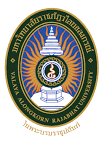Teaching Software Development According the Agile Concept
Keywords:
Teaching, Software Development, Agile ConceptAbstract
Widely adopted for its inherent speed, flexibility, adaptability, and collaborative teamwork, Agile serves as a robust framework for navigating the dynamic landscape of software development. For management, it stands out as an optimal approach that promptly responds to evolving customer needs, places a strong emphasis on development and team collaboration, embraces changes, and incorporates customer feedback. Software development according to Agile concepts consists of 1) hearing steak holders’ needs 2) planning and designing 3) software developing 4) trialing 5) redesigning 6) Reviewing and 7) evaluating. Teachers, in this context, assume the role of learning leaders, facilitating the learning process with flexible learning plan, learning-friendly atmosphere, and teamwork-oriented mind. This instructional approach promotes self-directed learning among students and enables them to apply the realm of software development which is an imperative skill for 21st century as the students are encouraged to cultivate competencies that enable them to stay abreast of global changes and advancements in science and technology. This is essential for individuals aspiring to become highly skilled professionals, Innovators, entrepreneurs, and modern farmers in the context of contemporary Thailand.
References
ชนัญชิดา เลิศจะบก และจงกล จันทร์เรือง. (2563). การประยุกต์ใช้อไจล์เพื่อออกแบบและพัฒนาระบบนำเสนอหนังสือมีชีวิตดิจิทัล กรณีศึกษาสำนักวิทยบริการและเทคโนโลยีสารสนเทศ มหาวิทยาลัยเทคโนโลยีราชมงคลอีสาน. รายงานสืบเนื่องจากงานประชุมวิชาการระดับชาติและนานาชาติ.
พงษ์พัชรินทร์ พุธวัฒนะ. (2564). การจัดการเรียนรู้เพื่อพัฒนาผู้เรียนในยุคดิจิทัล. วารสารนวัตกรรมการเรียนรู้และเทคโนโลยี, 1(2), 1-11.
พิฑูร ธนบดีกิจ และจีราภา อินธิแสง โธฌีม. (2565). หลักสูตรแนวคิดแบบ Agile (Agile Thinking). https://www.lifelong.cmu.ac.th/video/assets/files/skills4life/files/4c8d2c1ef63240b3a97637db5ec0079f.pdf
รวิศ หาญอุตสาหะ. (2566). ปรับองค์กรอย่างไรให้คล่องตัวและทันโลก. https://www.krungsri.com/th/plearn-plearn/adjust-agile-organization
Al-Saqqa, S., Sawalha, S., & AbdelNabi, H. (2020). Agile software development: Methodologies and trends. International Journal of Interactive MobileTechnologies, 14(11), 246-270.
Dudhat, A., & Abbasi, M. A. (2021). Discussion of Agile Software Development Methodology and its Relevance to Software Engineering. ADI Journal on Recent Innovation, 3(1), 105-114.
Gheorghe, A. M., Gheorghe, I. D., & Iatan, I. L. (2020). Agile Software Development. Informatica Economica, 24(2), 90-100.
López-Alcarria, A., Olivares-Vicente, A., & Poza-Vilches, F. (2019). A systematic review of The use of agile methodologies in education to foster sustainability competencies. Sustainability, 11(10), 2915.
Phongphet, W., Chumpa, A., & Thumpanit, A. (2023). การประยุกต์ใช้แนวคิดแบบอไจล์เพื่อพัฒนาระบบรับสมัครนักศึกษาออนไลน์ มหาวิทยาลัยนครพนม. วารสารศิลปศาสตร์ (วังนางเลิ้ง) มหาวิทยาลัยเทคโนโลยีราชมงคลพระนคร, 3(1), 49-61.
Pócsová, J., Bednárová, D., Bogdanovská, G., & Mojžišová, A. (2020). Implementation of Agile methodologies in an engineering course. Education Sciences, 10(11), 333.
Saltz, J., & Heckman, R. (2020). Exploring which agile principles students internalize when using a Kanban process methodology. Journal of Information Systems Education, 31(1), 51.
Sharp, J. H., Mitchell, A., & Lang, G. (2020). Agile Teaching and learning in information systems education: an analysis and categorization of literature. Journal of Information Systems Education, 31(4), 269-281.
Singh, R., Kumar, D., & Sagar, B. B. (2019). Analytical study of agile methodology in information technology sector. In 2019 4th International Conference on Information Systems and Computer Networks (ISCON), 422-426.
Suksomboon, P. (2023). Software Engineer. http://paijit.lpru.ac.th/cgi-bin/S5672601/SoftEng4.pdf
Trivedi, D. (2021). Agile methodologies. International Journal of Computer Science & Communicat.
Upplychainguru. (2023). หลักการของอไจล์ 12 ข้อ. https://supplychainguru.co.th/articles/soft-skills/12-agile-principles/



 Guidelines for Manuscript Preparation
Guidelines for Manuscript Preparation




